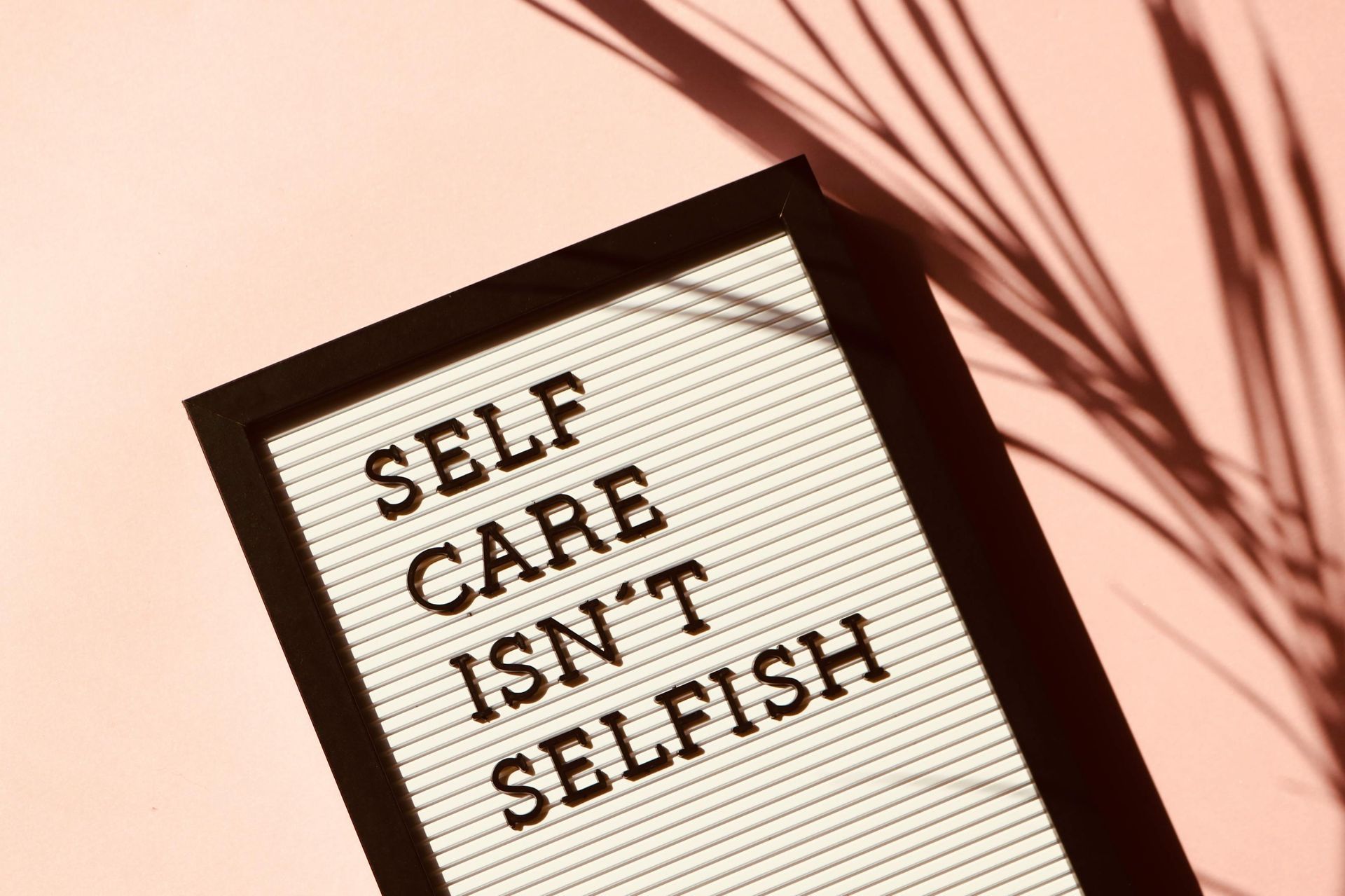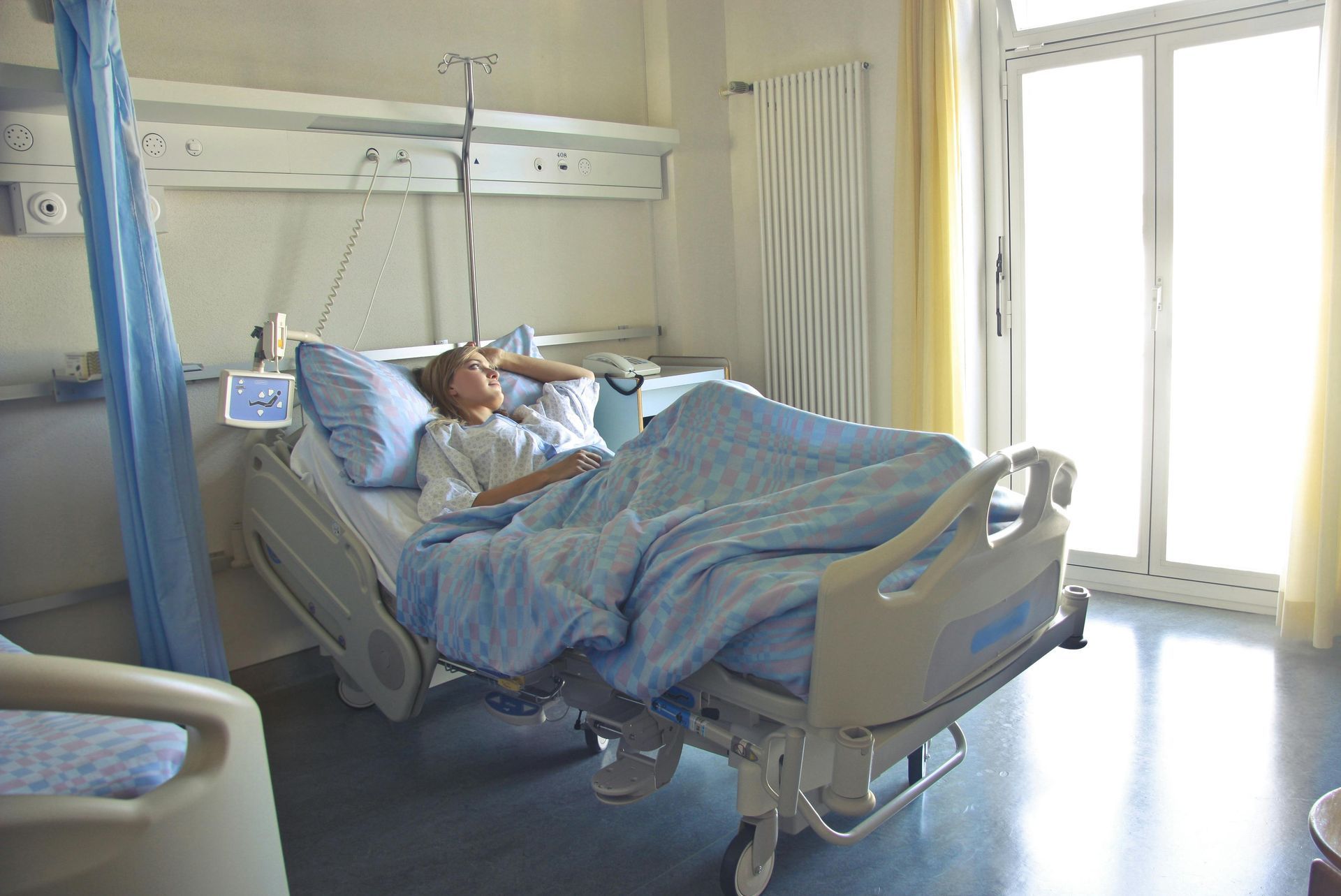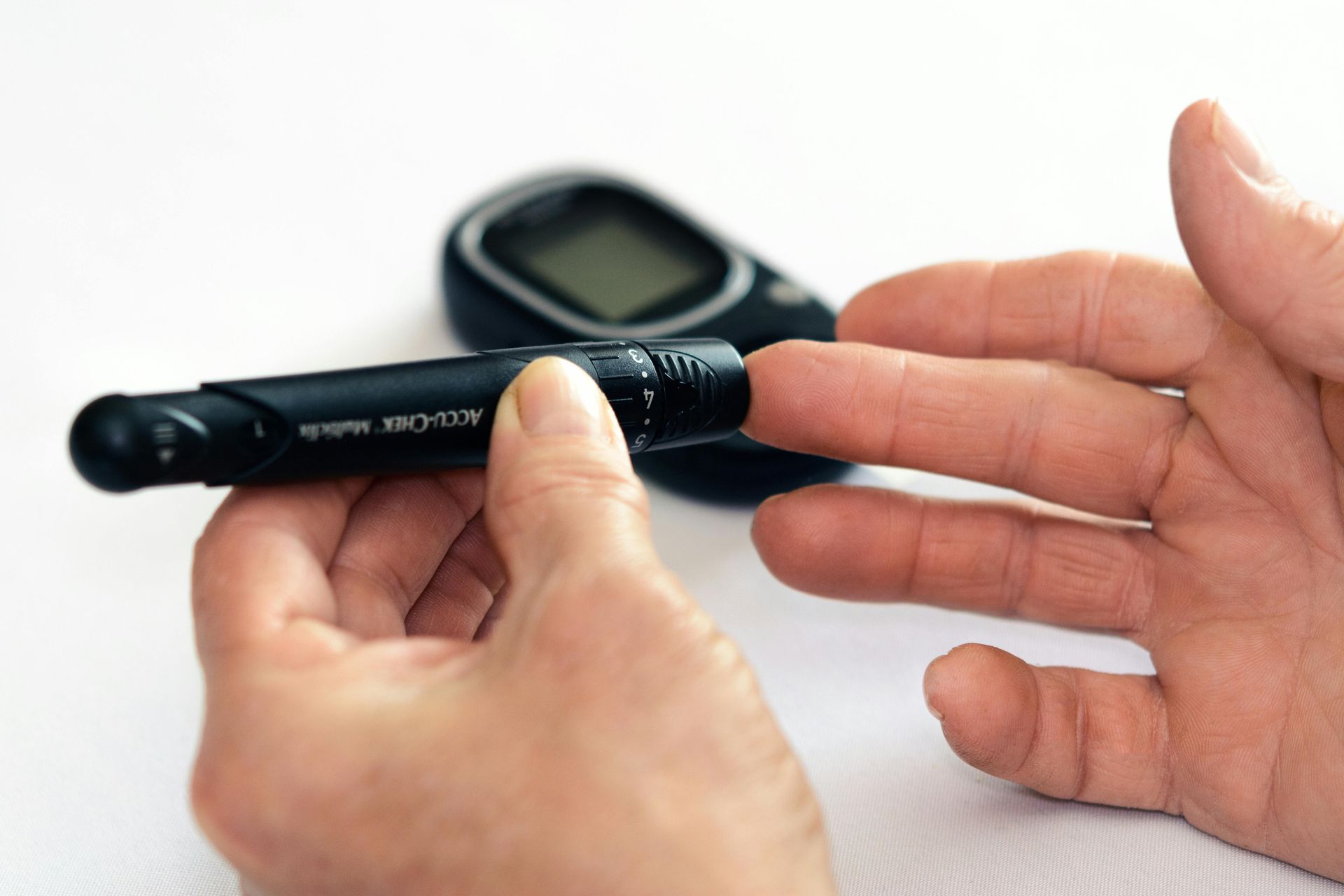Nursing BLOGS

November 16, 2024
Top 8 Part-Time Jobs for Aspiring Nurses Embarking on a journey towards a nursing career is both exciting and demanding. As aspiring nurses, juggling rigorous coursework with real-world experience can be a challenge. However, seeking part-time jobs that align with your studies can offer valuable insights and practical skills. These roles not only provide student income opportunities but also immerse you in hands-on learning within the healthcare field. Understanding the benefits of these part-time positions is key to maximizing your educational experience. Jobs such as patient care assistant, medical technician, or home health aide allow you to apply classroom concepts in real-life settings while developing crucial nursing skills. Moreover, flexible job options ensure you can balance work and study without compromising your academic goals. By engaging directly with patients and healthcare professionals, you'll gain essential experience that enhances both your professional growth and future career advancement in nursing. In this article, we'll dive into the top eight part-time jobs for nursing students that support skill development while offering flexibility and valuable income. Whether you are looking to improve patient care techniques or explore technological expertise critical for medical environments, these roles will set the foundation for becoming an adept nurse ready to face tomorrow's healthcare challenges. Patient Care Assistant For nursing students eager to immerse themselves in the healthcare field, working as a Patient Care Assistant (PCA) offers invaluable opportunities to gain hands-on experience. As a PCA, you are tasked with supporting medical staff and facilitating patient care activities. This position allows you to acquire essential skills such as taking vital signs, assisting with personal hygiene, and understanding patient needs—fundamental aspects of nursing practice. By operating in a clinical setting, aspiring nurses can witness firsthand the dynamics between patients and healthcare teams, thereby enriching their learning journey.The role of a Patient Care Assistant is not only about skill development but also about making meaningful connections with patients. Working closely with individuals who require assistance provides insight into diverse health conditions and enhances your capacity for empathy—a crucial trait for any nurse. For instance, if you're assigned to help patients recovering from surgery, you'll learn how to observe subtle changes in their condition and communicate effectively with medical personnel. Such experiences lay a strong foundation for future responsibilities you will undertake as a registered nurse. One of the most appealing aspects of working as a PCA is the flexibility it offers around your academic commitments. With shifts available at various times throughout the day or night, students can choose working hours that do not conflict with their class schedules. This flexibility ensures they can manage both work duties and study requirements efficiently without sacrificing one for the other. Moreover, many hospitals and clinics offer on-site training programs designed specifically for students, fostering an environment where education and practical skill acquisition go hand-in-hand. Being engaged actively in patient care while pursuing your nursing degree provides a significant advantage when entering the job market post-graduation. Medical Technician Aspiring nurses searching for part-time opportunities that enhance their technical skills should consider roles as medical technicians. This position plays a pivotal role in healthcare teams, requiring the operation of critical diagnostic equipment such as EKG machines, x-rays, and CT scanners. By engaging with these technologies first-hand, nursing students can develop a solid foundation of the technical expertise vital to their future careers in medicine, which will serve them well in fast-paced clinical environments.In addition to operating diagnostic equipment, medical technicians often assist with conducting tests and analyzing results under the supervision of seasoned professionals. This exposure is invaluable as it allows students to deepen their understanding of various medical conditions and treatments while developing precision in task execution. Take the example of a nursing student working part-time at a local hospital alongside radiologists; each hands-on experience becomes an educational opportunity that complements classroom learning by translating theoretical knowledge into practical application. Moreover, working as a medical technician presents an excellent platform for aspiring nurses to familiarize themselves with advanced medical technologies and procedures while fostering interdisciplinary collaboration skills. Interacting regularly with physicians and other healthcare staff enables nursing students to learn how different roles contribute to patient care delivery. Furthermore, being part of a dynamic team tasked with troubleshooting complex issues nurtures problem-solving abilities—an essential skill for any successful nurse swaying between ever-evolving challenges within healthcare settings. Therefore, taking on the responsibilities of a medical technician not only fortifies one's technical capabilities but also broadens perspectives on patient care methodologies. With this dual lens of proficiency and holistic awareness at their disposal, aspiring nurses are better equipped for both immediate workforce entry and long-term career growth—all while maintaining flexible hours conducive to academic commitments. Home Health Aide A role as a Home Health Aide can be incredibly rewarding for nursing students who wish to gain firsthand experience in providing personalized care to patients at home. This part-time job offers aspiring nurses an invaluable opportunity to establish strong, compassionate relationships with patients and to learn how to deliver effective caregiving tailored to individual needs. Whether it involves assisting elderly clients with daily activities or supporting individuals undergoing rehabilitation, the position helps sharpen vital communication skills and fosters empathy—two crucial aspects of nursing.Working as a Home Health Aide also allows nursing students the flexibility they often require while juggling academic responsibilities alongside work commitments. Typically, these positions offer adaptable schedules that can fit around classes and study times, making it easier for students to balance their academic pursuits with practical work experiences. Many agencies understand the demands on student schedules and provide shifts that can accommodate periods of intense study or exams. Moreover, this role encourages the development of various nursing competencies in real-life settings not typically found in classroom environments. By managing direct care for patients in their own homes, students will build confidence in their ability to handle emergency situations calmly, administer basic first aid when necessary, and manage essential tasks such as meal preparation designed for specific dietary requirements. This hands-on learning approach aids in transitioning theoretical knowledge into practice and significantly contributes toward career advancement in nursing by enhancing both practical skills and personal attributes essential for any future healthcare professional. Nursing Tutor or Teaching Assistant Serving as a nursing tutor or teaching assistant is not only an excellent part-time job for aspiring nurses, but also a pivotal role that enhances understanding and retention of nursing concepts. By helping peers or younger students grasp complex topics, student tutors reinforce their own knowledge base. Teaching others can further solidify the tutor's understanding of subjects such as pharmacology, anatomy, and patient care principles. This reciprocal learning process becomes especially beneficial when preparing for challenging exams or practical evaluations.This role also offers substantial flexibility, allowing students to manage their tutoring sessions around their class schedules. Many universities and colleges offer opportunities for students to engage in peer tutoring programs where they can set session timings according to personal preferences. Whether held over video calls or face-to-face, these engagements accommodate varied study commitments while still providing valued instruction time. Additionally, some educational platforms provide online tutoring services that allow you to connect with learners beyond campus boundaries—adding diversity to your teaching portfolio. Beyond academic enlightenment, being a nursing tutor improves critical skills like communication and leadership—qualities that are indispensable in any healthcare setting. When explaining medical procedures or reviewing case studies with learners, tutors hone their ability to present information clearly and effectively—skills directly transferable to patient interactions. Furthermore, this role instills confidence in presenting in front of groups and taking charge—a useful preview of leading patient education sessions or working within multidisciplinary teams once you've officially stepped into the professional realm. Laboratory Assistant For aspiring nurses, working as a laboratory assistant provides an opportunity to delve into the scientific foundation of clinical practice. This role involves supporting research projects and performing various lab duties, such as preparing specimens, maintaining equipment, and managing data entry. Engaging in these tasks not only develops your organizational skills but also deepens your understanding of essential laboratory processes. Laboratory assistants often find themselves at the heart of medical discoveries and innovations, getting a firsthand glimpse into how research can directly impact patient care and treatment protocols.As a laboratory assistant, you'll be required to adhere to stringent safety protocols. This experience is invaluable for future nursing roles that demand precise attention to detail and adherence to safety measures. By following these protocols meticulously, you cultivate habits that will ensure patient safety in your nursing career. Furthermore, familiarizing yourself with advanced laboratory equipment can enhance your technical knowledge and proficiency—an aspect crucial for any nurse tasked with interpreting diagnostic results or collaborating closely with multidisciplinary teams. Combining theoretical knowledge gained in nursing courses with practical lab experience fosters critical thinking skills applicable across healthcare settings. It demonstrates the practical application of medical theories you're learning about in class and reveals how they contribute to ongoing health improvements. A position as a laboratory assistant thus serves as an ideal bridge between academic study and real-world healthcare scenarios. Additionally, the flexible nature of this job allows you to align work shifts with your academic commitments efficiently. Overall, managing dual responsibilities presents a unique chance for professional growth without compromising on educational priorities—a balancing act that greatly benefits your journey towards becoming a proficient nurse. Clinic Receptionist Taking on a part-time role as a clinic receptionist offers aspiring nurses an invaluable opportunity to bolster their administrative skills within the healthcare setting. This position serves as the frontline of any medical practice, allowing individuals to immerse themselves in the operational aspects that keep clinics running smoothly. Nursing students can develop proficiency in using scheduling software, handling electronic health records, and managing patient information with confidentiality and precision. Efficient administrative skills are necessary for future nursing roles where meticulous attention to detail is crucial, particularly in documentation and patient history assessments.Moreover, a role as a clinic receptionist involves engaging directly with patients during front desk interactions. This experience is beneficial for those looking to refine their communication skills, arguably one of the most critical attributes of effective nursing care. By welcoming patients, answering inquiries, and facilitating their initial needs upon entering a medical facility, nursing students can develop confidence and compassion—qualities that will serve them well when transitioning into clinical nursing environments. Simultaneously balancing professionalism with warmth ensures that patients feel at ease, which nurtures an environment conducive to recovery and trust. Additional responsibilities include managing scheduling, maintaining records, and executing customer service tasks—all essential components of this job that sharpen organizational competencies in future nurses. As a clinic receptionist, students must coordinate appointment bookings efficiently while occasionally responding to time-sensitive or emergent situations—skills that reflect multitasking under pressure within healthcare settings. Learning to prioritize tasks effectively can enable aspiring nurses to better manage high-pressure scenarios they would likely encounter in direct nursing roles post-graduation. This position not only provides income opportunities but also shapes pivotal abilities encompassing interpersonal relationships and administrative excellence essential for career advancement in nursing. The experiences gained through operating as a clinic receptionist prepare students comprehensively for entering more demanding facets of patient care later in their careers without losing focus on their educational pursuits. Pharmacy Technician A role as a pharmacy technician offers nursing students a unique perspective on the pharmaceutical processes that are an integral part of patient care. By working in this position, aspiring nurses can gain hands-on experience in handling medications and understanding their effects on different health conditions. Collaborating closely with pharmacists provides an invaluable learning opportunity to grasp the intricacies of medication dispensing, which includes verifying prescription details, measuring precise dosages, and ensuring compliance with legal regulations.Acting as a pharmacy technician also allows nursing students to build essential skills in recognizing drug interactions and contraindications. For instance, by managing real-life scenarios involving multiple prescriptions for a single patient, students learn how to identify potentially dangerous combinations and ensure optimal therapeutic outcomes. This practical knowledge is crucial when stepping into clinical nursing roles where medication management often plays a vital role in patient treatment plans. Moreover, such experience enhances decision-making abilities regarding pharmacological interventions during rotations or internships. In addition to gaining insights into medication-related tasks, pharmacy technicians develop customer service skills by interacting directly with patients picking up their prescriptions. These encounters foster communication proficiency and empathy—qualities indispensable for any future nurse aiming to deliver exceptional healthcare services. The ability to explain complex instructions clearly and compassionately ensures that patients understand how to manage their medications correctly at home. Overall, working as a pharmacy technician not only equips aspiring nurses with comprehensive expertise in pharmaceutical care but also contributes significantly towards their professional growth within the healthcare field. The balance between technical capability and compassionate interaction learned through this job supports further advancement along the educational pathway while earning student income. Enhancing Nursing Careers Through Part-Time Work Balancing work and study is crucial for aspiring nurses who are looking to grow personally and professionally. The part-time jobs listed above, whether as a patient care assistant, medical technician, or any of the other options, provide invaluable nursing skills development and hands-on learning in healthcare settings. These roles allow students to build their competencies while accommodating their educational priorities through flexible job options. Each position offers unique opportunities to engage with patients, improve technical skills, and understand the inner workings of healthcare environments.Moreover, these part-time positions not only foster career advancement in nursing but also offer student income opportunities without compromising academic success. By integrating work experience with studies, nursing students gain an edge that will benefit them long after graduation. Choosing the right part-time job enables them to learn practical applications of theory, build networks within the industry, and lay a solid foundation for their future careers as nurses. Start exploring these roles today to enhance your journey toward a rewarding career in healthcare.

November 13, 2024
Secrets of a Nurse's Heart: Unsent Letters Revealed In the quiet corners of a bustling hospital, a nurse finds solace in paper and pen. These unsent letters capture the whispers of her heart—unseen by their intended recipients but overflowing with raw emotion and unspoken truths. Here lie a nurse's confession—a tapestry woven with personal reflections and stories from the frontlines. As we turn these pages, we are invited into a private world where resilience in healthcare is not just about skill or stamina, but about navigating the emotional depths that come with every shift. Through these letters, the profound connection between nurses and patients comes alive. Each note uncovers layers of a nurse-patient bond built on deeply shared moments of empathetic care. These relationships often evolve silently in the background, underscoring every touchpoint of human connection in medical settings. What drives a nurse to pour her heart out this way? How do unsent words act as both balm and burden? These questions guide us through an exploration that promises insight into the trials—and triumphs—of those who dedicate their lives to healing others. Join us in unraveling these heartfelt confessions that reveal an indispensable side of nursing few have witnessed—but all should hear. The Nurse's Confession In the dim glow of a hospital corridor, a nurse finds solace in the quiet moments between shifts with pen and paper as her confidants. For many nurses, therapeutic writing serves as an emotional outlet—a way to express unspoken thoughts tethered to their daily encounters with patients. The unsent letters kept safely tucked away embody the raw, poignant confessions of heartache and triumph experienced on the healthcare frontlines. Through this private act of journaling, nurses uncork bottled-up emotions, releasing them into words that provide relief from the relentless cycle of caregiving.Yet, these deeply personal missives often remain unsent for a reason. They contain vulnerable reflections meant not for the eyes they silently address but as whispers into the unknown—cathartic releases rather than communications seeking response. Behind each letter lies a profound struggle or moment of connection that transcends professional boundaries yet remains constrained by ethical lines. Therein is revealed an intricate balance: maintaining professional detachment while embracing genuine empathy. This delicate dance reflects how deeply nursing interweaves with personal sacrifice and dedication. These confessions candidly reveal the essence of nursing—an art requiring more than clinical knowledge; it demands intimacy and understanding born out of shared human experiences. Through their written words, nurses divulge stories that underscore both resilience and vulnerability intrinsic to their roles. In facing overwhelming sorrow or celebrating unexpected recoveries privately through writing, they illuminate their world’s unseen intricacies—the vital responsibility to nurture emotional depth within themselves despite its burden. By reflecting upon these narratives without judgment or reservation, one gains insight into not only the challenges inherent in nurturing others but also invaluable aspects defining empathetic care in medicine today. Emotional Depth in Nursing In the demanding realm of healthcare, nurses find themselves navigating a landscape filled with emotional highs and lows. Each day, they are called upon to provide not just clinical expertise but also emotional support to their patients. The challenges are manifold; from dealing with the heart-wrenching reality of patient losses to celebrating the triumphs of recoveries. Nurses must balance their professional responsibilities with deeply personal interactions, often developing close connections with those under their care. This delicate balancing act requires immense emotional fortitude, making resilience an indispensable trait for any nurse.Frontline stories illustrate this profound emotional depth vividly. Consider a nurse who spends countless hours by a patient's side during their last moments, offering both comfort and dignity in a time of vulnerability. There could be another narrative where a nurse advocates fiercely for better treatment options for her critically ill patient, driven by an unwavering commitment to empathetic care. These experiences showcase the remarkable combination of compassion and strength that defines nursing. Such instances lay bare the impact nurses have beyond medical procedures—they become lifelines for hope and humanity. Amidst these challenges, personal reflections become a crucial tool for mental well-being among nurses. Engaging in therapeutic writing or simple introspection allows them to process complex emotions encountered on the job. By articulating their thoughts and feelings through unsent letters or diaries, nurses can gain perspective and clarity—turning turbulent emotions into thoughtful reflections. This practice not only aids in coping with daily stressors but also fosters growth and self-awareness, enhancing overall mental health while strengthening resilience against burnout within this demanding profession. Nurse-Patient Bond The relationship between a nurse and a patient transcends the clinical process, evolving into one of profound human connection. Over time, nurses form deep connections with patients by being present, attentive, and empathetic in their care. In many ways, these bonds develop silently through shared moments—an exchange of hopeful glances when facing uncertainty or a comforting hand during times of distress. This deeper understanding fosters an environment where trust and mutual respect naturally blossom. For instance, consider the story of Jane, a seasoned oncology nurse who connected with Sam, a young patient battling cancer. Despite the gravity of his condition, Jane noticed Sam’s quiet resilience and unique sense of humor. She often stayed past her shifts to listen to his stories or discuss his favorite books, activities infused with care that created meaningful ties beyond medical treatment.These emotional investments can significantly affect both patient outcomes and nurse satisfaction. When patients feel genuinely cared for and understood by their nurses, they are more likely to trust their caregivers' advice and actively participate in their own healing journey. As seen in the case mentioned above, Sam’s willingness to adhere to rigorous treatments was amplified due to his bond with Jane. Her genuine interest in helping maintain aspects of his life outside the hospital empowered him further during difficult periods at treatment stages. Moreover, for nurses like Jane, these relationships offer reciprocal fulfillment that reignites their passion for nursing amidst challenging days on the frontlines. Beyond facilitating better patient adherence to care plans or enhanced recovery experiences lies a mutually nourishing cycle—the joy from witnessing small victories in healing strengthens jane's sense of purpose while anchoring her personal commitment toward nurturing such bonds continually throughout her career path trajectory. Unsent Letters: A Therapeutic Practice Writing can be a powerful therapeutic tool for nurses, providing them with an outlet to process their emotions and experiences on the frontlines of healthcare. The act of composing unsent letters allows nurses to articulate feelings they might struggle to express in the demanding environment of their workplace. These letters, though unwritten with the intent to send, serve as personal dialogues where nurses can pour out their gratitude, sorrow, regrets, or triumphs—offering clarity and emotional release that is often unattainable through mere contemplation.For instance, a nurse might write a letter to a patient who has passed away under her care, expressing the lingering 'what-ifs' over missed chances at connecting more deeply or simply sharing time spent together. Other letters may capture moments of awe when witnessing a patient's extraordinary resilience against all odds. Such narratives not only provide closure but also become commemorations of human strength and vulnerability that tend to haunt healthcare professionals long beyond the immediate crisis. The reflective nature of these exercises helps to untangle complex emotional webs and fosters a deeper understanding of oneself as both caregiver and human being. Encouraging therapeutic writing practices within healthcare environments could fundamentally support mental health among nursing staff. Providing safe spaces where nurses feel free to share their unsent letters without judgment can foster camaraderie and solidarity among colleagues facing similar struggles. Institutions might consider workshops or journaling groups aimed at normalizing this practice as part of regular wellness programs. Recognizing writing as an essential coping mechanism validates these personal reflections as integral components in cultivating empathetic care—infusing purpose back into the roles nurses diligently fulfill each day despite their emotional challenges. Ultimately, whether by illuminating hidden truths through metaphorical ink or deciphering life's poignant signals cloaked in regret or gratitude, writing remains an empowering route toward healing for many in nursing's noble profession. As these unsent letters are etched into existence—even if only temporarily—they fortify the connection between heartache and hope while reaffirming the profound impact even small gestures from caretakers can have on those entrusted in their stewardship. Stories from the Frontlines In the bustling corridors of a hospital, amid a whirlwind of beeping monitors and hurried footsteps, lies a world rich with profound human connections. One poignant example is that of Nurse Emily, who cared for an elderly dementia patient named Mr. Johnson. Despite his often confused state, Emily's consistent presence became his anchor in reality. By simply remembering the little details he shared about his past, she offered him moments of clarity and peace. This act of empathy transcended typical medical care and highlighted the warmth nurses often infuse into seemingly clinical interactions.Contrasts in these stories reveal how diverse yet universally impactful these connections can be. Take the case of Nurse Alex and a young burn victim named Lily. Their bond was formed through silent communication—through smiles, gentle touches, and respectful acknowledgment of her pain when words felt inadequate. Balancing a fine line between professional boundaries and personal compassion, Alex found ways to assure Lily that despite her physical scars, she was seen as whole—a crucial message helping in her psychological recovery. Nurses often witness transformative moments that profoundly define not only their careers but also their personal perspectives on life and death. For instance, witnessing patients take their first steps after an intense rehab or hold a loved one's hand one last time is humbling and awe-inspiring for many healthcare workers like Nurse Sarah. In Sarah’s unsent letters chronicling these experiences, you find tales not only of suffering but also immense triumph—each letter echoing the silent promise nurses make daily: to embody hope where it may otherwise seem absent. These narratives serve as touching reminders that while nurses are immersed in science, it is their humanity that leaves lasting impressions on patients' lives. Resilience in Healthcare In the emotionally taxing world of nursing, resilience stands as a crucial attribute that empowers healthcare workers to endure daily challenges while maintaining their emotional and mental well-being. Resilience in this context is not merely about plowing through hardship; it involves adapting positively to stress and rebounding from setbacks with renewed strength. Nurses often face situations laden with high pressure, life-and-death decisions, and intense emotional interactions with patients and their families. This unyielding demand for empathy, patience, and professionalism necessitates an inner reserve of perseverance—a quality that distinguishes those who thrive in such environments.Healthcare professionals have devised varied coping strategies over time to fortify their resilience. Many rely on peer support networks within their workplace, leaning on colleagues who understand the unique pressures of the profession. Others find solace in reflective practices like journaling or meditation that help them mentally process difficult experiences. Engaging in regular physical exercise or pursuing hobbies outside work also provide crucial outlets for stress release and cultivate a balanced life perspective. These personalized self-care routines can serve as lifelines amid the turbulence of caregiving duties. Institutional support mechanisms play a pivotal role in enhancing nurses' ability to bounce back from adversity. Facilities implementing structured debriefing sessions after traumatic events allow staff members to express emotions freely without judgment, fostering a sense of psychological safety. Moreover, offering access to professional mental health resources emphasizes an organizational commitment to preserving nurse wellness and resilience. Some institutions have even adopted mentorship programs where seasoned nurses guide newcomers through initial hurdles, laying down foundations of resilience from the outset of their careers. Ultimately, achieving true resilience requires both personal initiative and supportive institutional frameworks working harmoniously together. By equipping nurses with practical tools for managing emotional challenges while cultivating nurturing environments conducive to growth, healthcare settings can ensure that their professionals remain strong pillars—not only surviving but thriving—in providing empathetic care amidst demanding circumstances. Human Connection in Medical Settings In the labyrinth of modern healthcare, where clinical protocols and medical technology often take center stage, the profound impact of empathy cannot be underestimated. It acts as a bridge between science and the soul, ensuring that patients feel genuinely cared for beyond their physical ailments. Nurses, with their intimate role in patient care, exemplify this human connection daily. They often serve as a comforting presence whose understanding gaze or reassuring touch can quell fears that medication alone cannot pacify, illustrating how compassion complements clinical expertise to foster healing environments.Consider the story of an elderly patient who refused to eat after losing her husband until a nurse took time each day to sit with her during meals. The nurse shared stories about her own family and listened intently to tales of times gone by from the patient's life. This simple act of breaking bread together became a source of nourishment not just for the body but for the spirit as well. Eventually, this warm exchange rekindled an appetite for both food and life itself within the patient—a testament to how human touch can be pivotal in recovery without involving any complex medical intervention. The role of these 'soft skills'—empathy, communication, patience—remains intertwined with medical proficiency in successful caregiving roles. While nurses are meticulously trained in clinical procedures and emergency responses, it’s their ability to connect personally which often leaves lasting impressions on those they care for. Indeed, scientific advancements have revolutionized treatment capabilities; yet, it is through moments rooted in kindness and respect that true healing transcends beyond disease management into holistic well-being. As healthcare continues evolving in scope and sophistication, maintaining this essence of personal interaction is paramount. Encouraging practices that highlight these empathetic engagements ensures that caregivers do not lose sight of the human element amid technological advancements and procedural efficiencies. These connections not only enrich patient experiences but also invigorate clinicians with renewed purpose—fueling their compassionate missions even under trying circumstances within bustling hospital corridors. Reflections on Empathetic Care and Resilience In peeling back the layers of a nurse's confession through her unsent letters, we witness the profound emotional depth embedded in nursing. These personal reflections reveal not only the struggles and triumphs faced by nurses but also the essential role empathy plays in their everyday encounters. The therapeutic practice of writing unveils a coping mechanism that enhances a nurse's ability to process emotions and maintain mental well-being amid the demands of caregiving. Through these honest accounts, we discern how deeply woven the nurse-patient bond is—fostering meaningful interactions that can transform both lives.To thrive in nursing requires an unwavering resilience bolstered by human connection in medical settings. These stories from the frontlines illustrate that soft skills like compassion often yield as much impact as clinical expertise itself. As caregivers open their hearts to patients, they reinforce hope and healing, ensuring that care extends beyond treatment protocols to touch the soul. Ultimately, embracing emotional challenges allows nurses to make a genuine difference in their patients’ lives while forging their own path marked by kindness and strength—a testament to the unparalleled spirit driving this noble profession.
Welcome to RN HUB: Your Premier Blog for All Things Nursing
At RN HUB, we’re dedicated to creating a dynamic space for prospective nurses, nursing students, Registered Nurses (RNs), and Advanced Practice Registered Nurses (APRNs). Our blog is designed to be your go-to resource for stories, knowledge, and insights that inspire and empower the nursing community.
Here’s what makes RN HUB the ultimate destination for nursing professionals and students:
- True Stories from the Heart of Healthcare
Explore compelling narratives from nurses at every stage of their careers. From heartwarming patient encounters to lessons learned in high-pressure situations, these stories are real, relatable, and unforgettable. - Up-to-Date Medical Information
Stay informed with accurate, evidence-based medical insights. Our posts are tailored to enhance your understanding, whether you’re tackling nursing school coursework, preparing for board exams, or seeking to sharpen your clinical expertise. - "Best of" Guides for Nursing Success
Find top-rated recommendations for everything nursing-related—from the best stethoscopes and apps to must-read books and scrubs that survive the toughest shifts. - Professional Growth and Career Tips
Unlock your potential with advice on acing nursing school, navigating the transition from student to professional, and advancing into leadership roles or specialty areas. - Wellness and Self-Care for Nurses
Discover strategies to manage stress, build resilience, and maintain a healthy work-life balance, because taking care of yourself is vital to providing the best care for others. - Interactive and Engaging Content
Test your knowledge with quizzes, explore thought-provoking challenges, and connect with a vibrant community of nursing professionals who share your passion and purpose. - Exclusive Insights and Industry Trends
Stay ahead of the curve with articles on emerging healthcare technologies, nursing innovations, and evolving trends shaping the future of the profession.
RN HUB is more than a blog; it’s a community-driven platform created by nurses, for nurses. Whether you’re just starting your journey or are a seasoned professional, RN HUB offers something for everyone.
Join the RN HUB family today and let’s learn, grow, and thrive together!


























